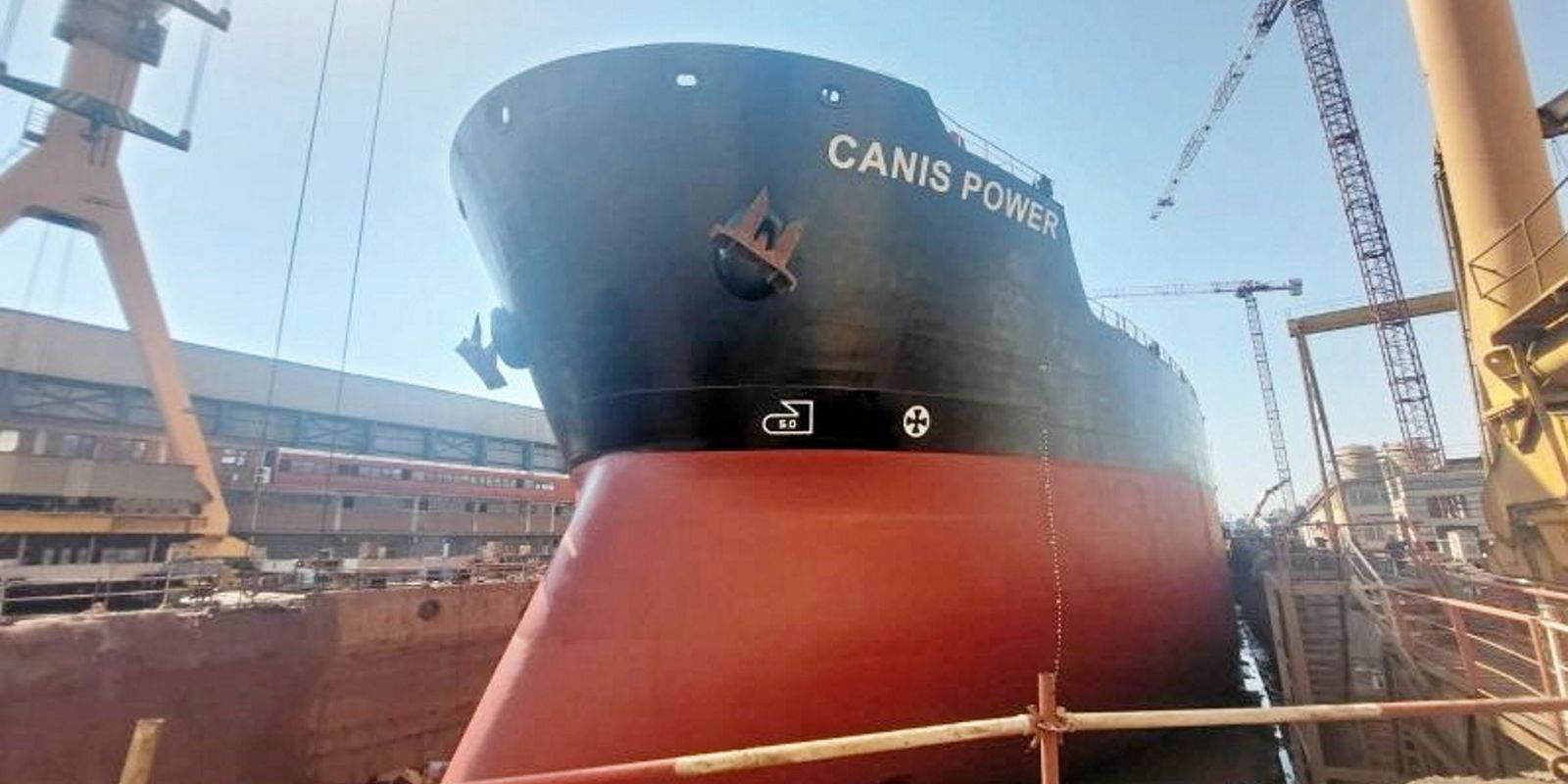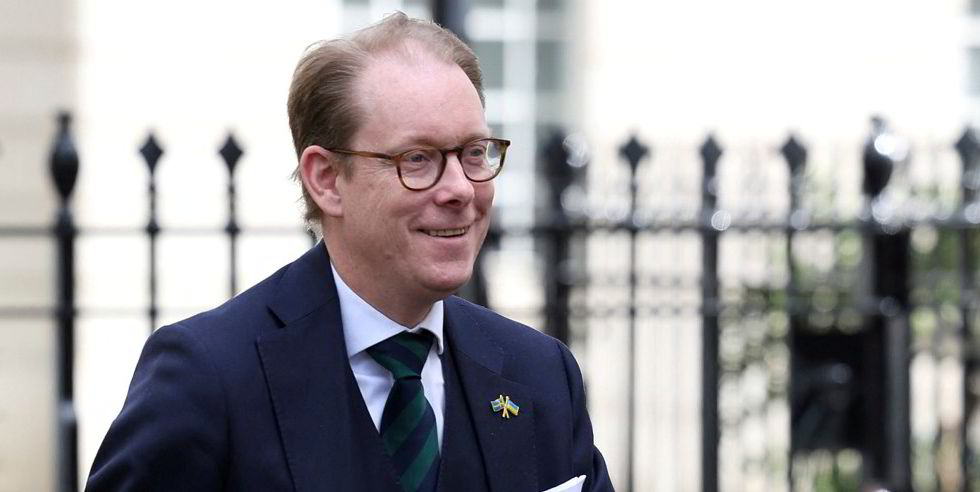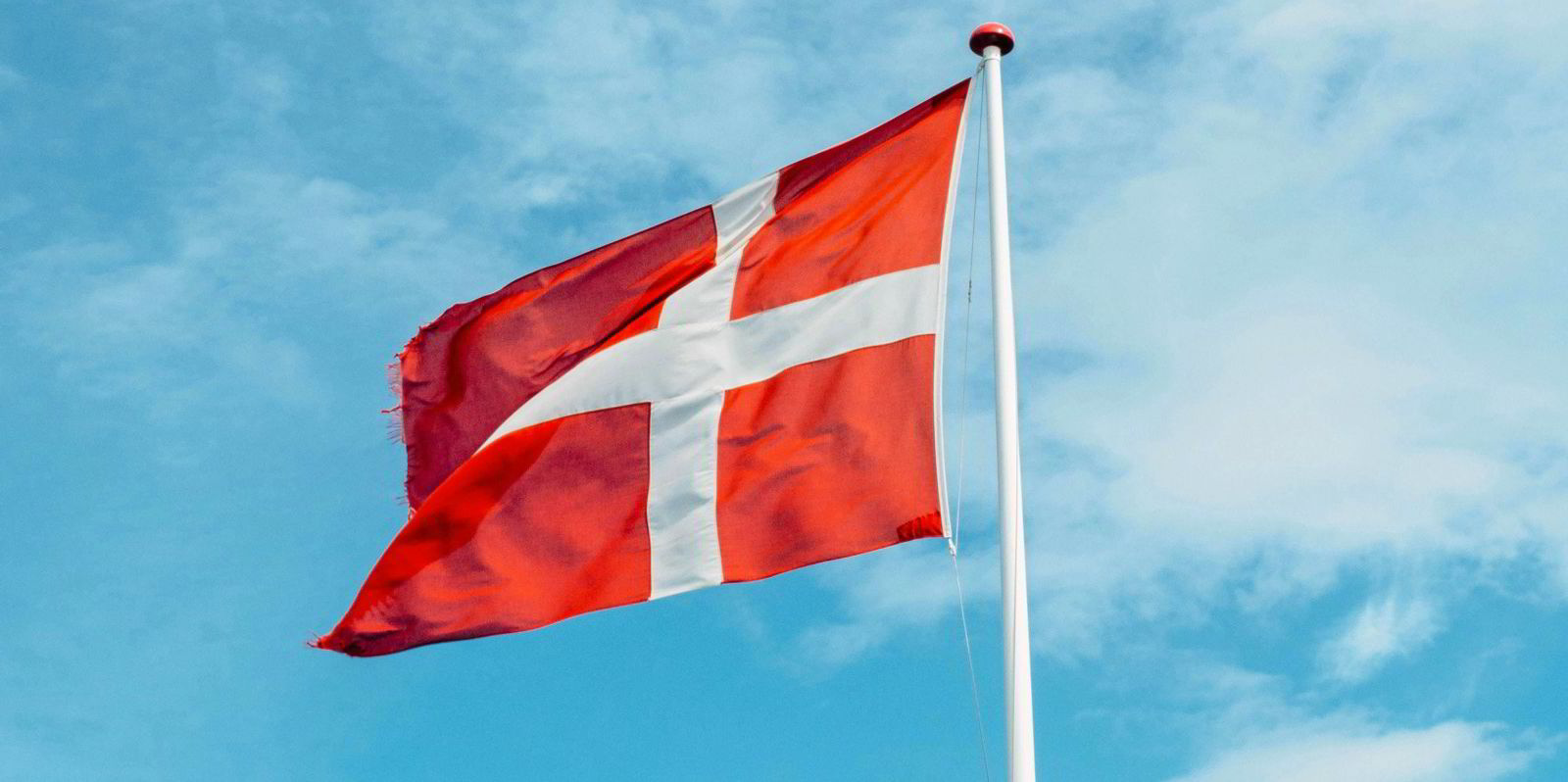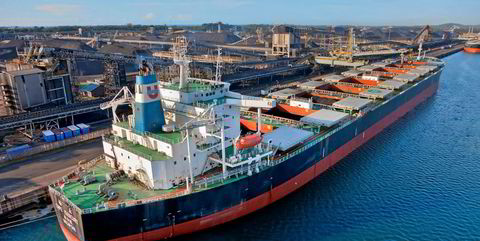Sweden’s foreign minister has called for greater restrictions on the ageing fleet of tankers hauling Russian oil through the Baltic Sea.
Tobias Billstrom claimed that Russia “doesn’t care one bit” about causing major environmental havoc at sea.
“We will all be affected if there were a major problem arising from a collision or oil leakage from one of these ships, which also in many cases are not seaworthy, or very close to not being seaworthy,” Billstrom told The Guardian.
The topic was discussed at a meeting of eight Nordic-Baltic countries on the island of Gotland earlier this month, where some countries were wary of intervening in Russia-linked vessels in international waters.
He told the newspaper that Nato could not be seen to be acting like the Houthis in the Red Sea by restricting the freedom of navigation.
He said that in addition to hauling oil that funded Russia’s war in Ukraine “even worse is the fact that Russia doesn’t care one bit, apparently, about the fact that these ships could cause major environmental havoc in seas, which if you take the Baltic Sea is sensitive as it is”.
The issue has been a hot topic among Baltic nations and at the International Maritime Organization but little has been done to restrict the movements of the Russian fleet.
Rumoured European Union moves to increase inspections of ships travelling past Baltic coastal states were played down by Denmark which said that a 166-year treaty and UN regulations meant ships had the right of innocent passage through the Danish straits.
Ships that do not call at its ports can be boarded only if they are not in innocent passage.
Denmark has backed moves at the IMO to emphasise flag states’ responsibility to ensure that ships comply with international rules.
The nature of the ageing fleet hauling Russian oil is in part a product of the sanctions regime imposed by Western countries.
Many European ship operators withdrew from hauling Russian oil at the beginning of the war, and mainstream players have increasingly pulled out amid robust sanctions enforcement.
State carrier Sovcomflot has accepted that the regime has affected its own operations and also promoted the use of “old ships” in the shadow fleet.
Chief executive Igor Tonkovidov said this week that up to one-quarter of Russian oil was carried by tankers controlled by Russian companies while the rest was transported by the shadow fleet.
This larger proportion of vessels “are not bright horses, but old ships. This is a challenge for insurance companies”, Tonkovidov told reporters.
Russian insurer Ingosstrakh, which covers some of the dozens of tankers dropped by Western protection and indemnity providers, has an exclusion clause that requires Russian exports to comply with applicable US, UK or EU laws, according to documents seen by the Financial Times and Danish journalism outfit Danwatch.
That suggests that coastal states could be left to pick up the tab for clearing up any oil spill.
The same outlets reported that at least 20 vessels had rejected specialist navigators for the dangerous waters connecting the North and Baltic Seas this year.
Alarm bells rang after the 53,100-dwt product tanker Canis Power (built 2005) lost power in May 2023 off the coast of Denmark with 340,000 barrels of Russian oil on board.

It nearly ran aground before reaching deeper waters for repairs. The ship had just changed P&I provider and details of replacement coverage were hard to come by.
Denmark is also investigating a collision in March involving a shadow fleet tanker, the 116,000-dwt Andromeda Star (built 2009), en route to load Russian crude.
The US says the latest phase of the sanctions programme is aimed at using market measures to increase the costs to Russia of building a fleet to haul its oil.
Last year, the Kremlin announced a subsidised loan scheme to buy ships and fill a shortfall in tonnage.
A report last year by Finland’s Centre for Research on Energy and Clean Air said there was little evidence of coordination by the government in Moscow in building a “shadow” fleet of vessels.
Sweden and Finland joined Nato in March with all countries around the Baltic Sea, except for Russia, now part of the military alliance.
“This fundamentally redraws the security map in our part of Europe. Sweden and Finland will allow an increase of Nato’s operational depth and tie the High North, the North Atlantic and the Baltic regions more closely together,” Billstrom told an event in Cambridge, UK, this week.
Read more
- Dubai, the shadow fleet and a tale of vanishing tankers
- Danes fear ‘catastrophic’ pollution as tanker carrying Russian oil breaks down in Baltic
- Greenpeace protesters target bunker tanker over ‘support for Russian oil exports’
- Direct hit on vital Russian oil pipeline halts tanker loadings in Azov
- Russia’s shadow tankers rejecting Danish pilots, probe reveals





